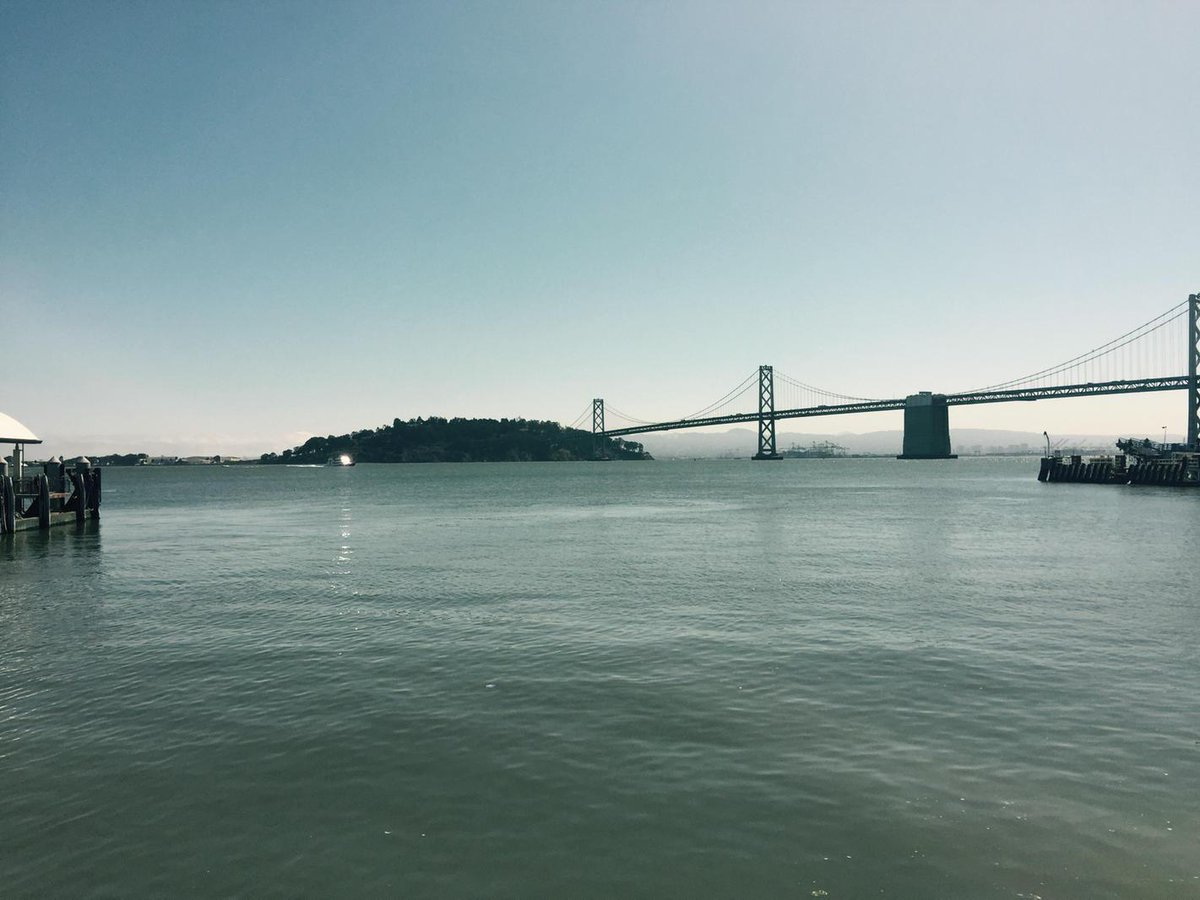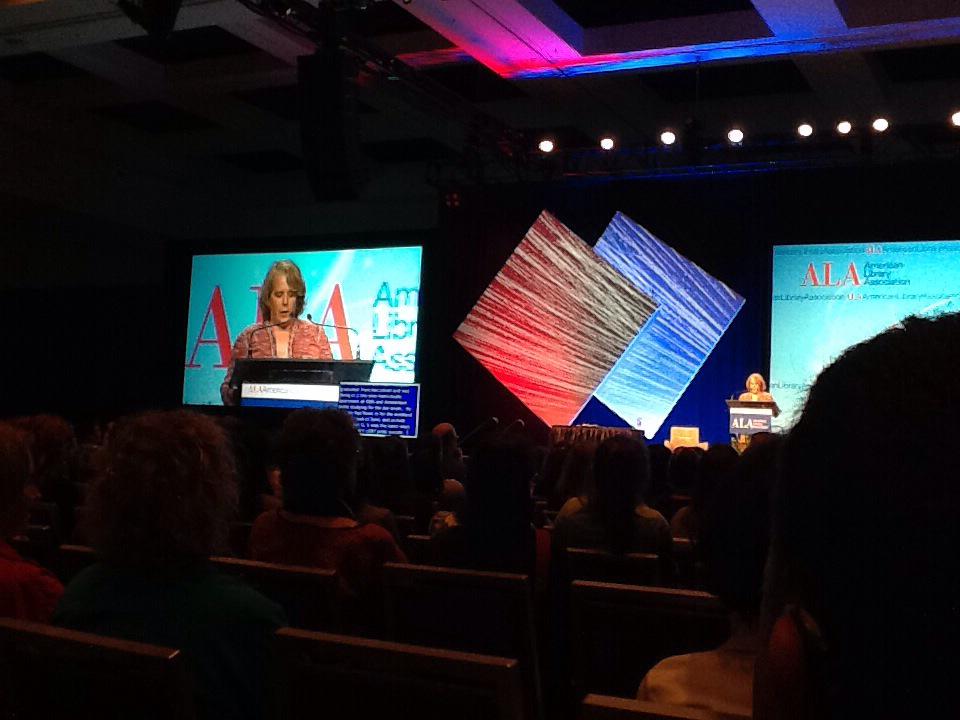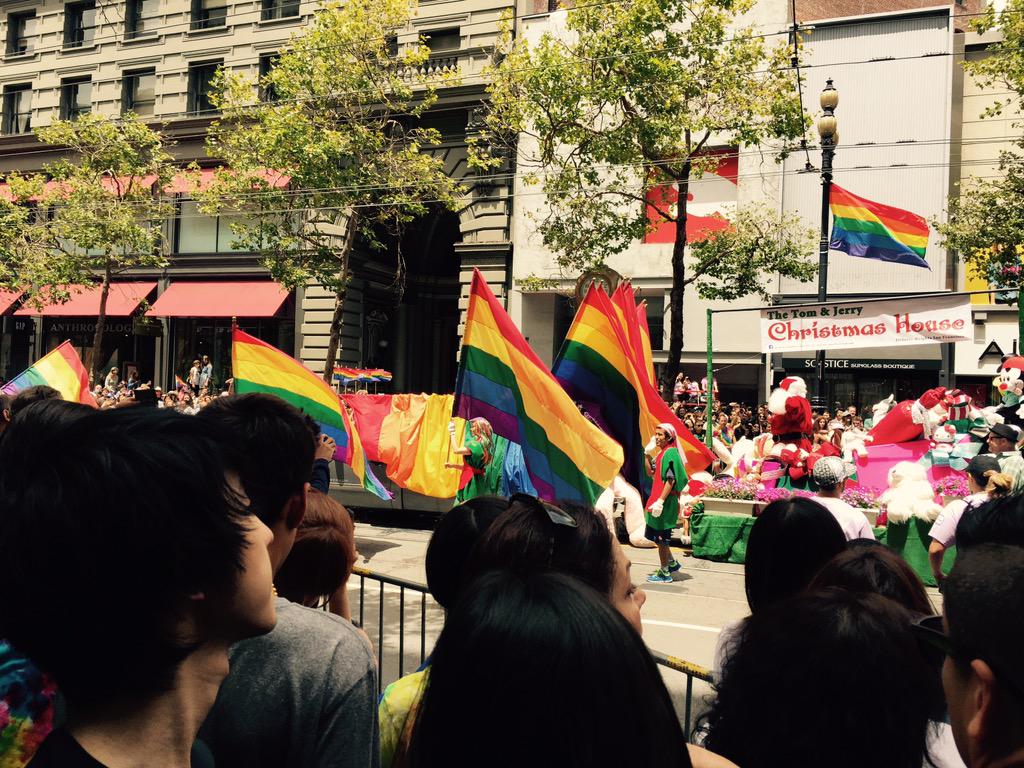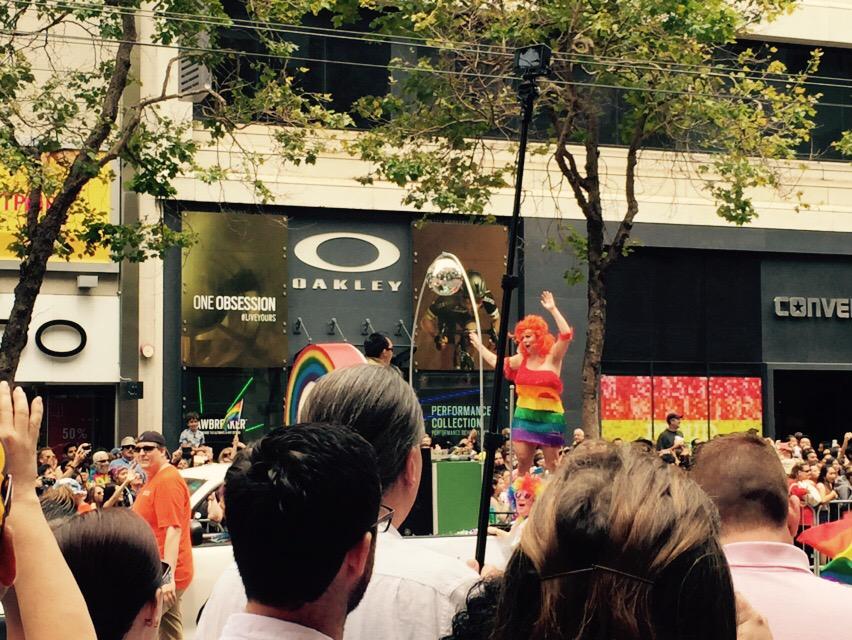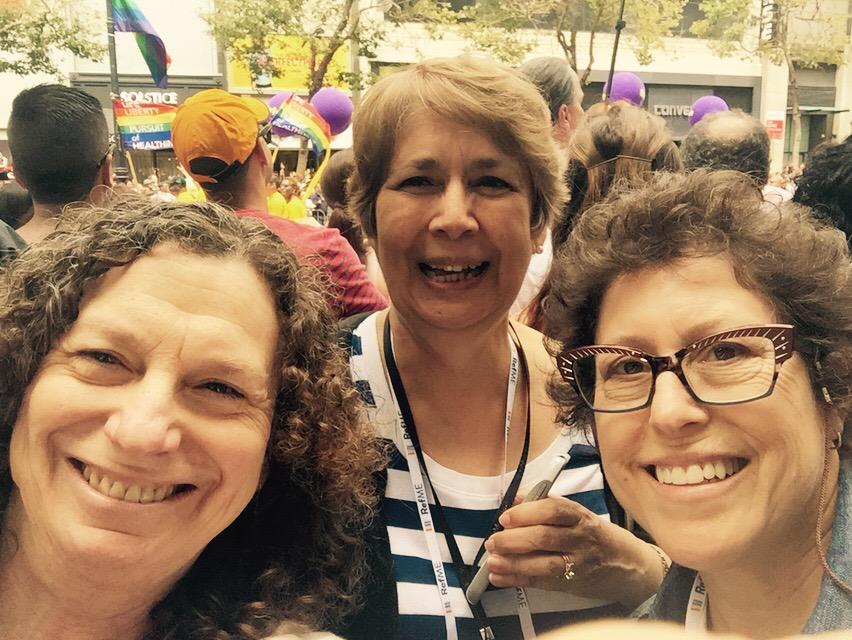The annual American Library Association Conference is coming up in less than two weeks! Everyone who knows me knows that I'm a self-confessed conference "junkie." Ever since my first California School Library Association conference in 2002, I haven't been able to resist the chance to attend a professional conference. Why? ... Here are at least some of the reasons ...
- Conferences take me away from the frequent isolation I often feel at work, being the only one who does what I do, and give me a chance to connect with peers who understand and have wisdom to share to help me past hurdles. The advent of Twitter and other social media in the last few years definitely helps to alleviate that isolation, but there is no substitute for frequent doses of live interaction.
- Conferences inspire me with new ideas and infuse me with the energy to try applying those ideas.
- They give me a chance to contribute. Even if I am not presenting a session, I always make sure to volunteer and be an active participant in some way.
- And, then there's the fun ... I love getting to hang out with friends old and new, attend parties and special events, see new places, and enjoy any perks such as free books and other products.
So what can you do to best prepare for and take advantage of a conference? I have benefited in the past from a number of colleague's suggestions,
especially Gwyneth Jones' packing posting.
Here's a few of my personal suggestions, both for what to do in advance and during the conference:
Follow the Conference Twitter Hashtag
Even if you aren't already a big Twitter user, you will want to create an account to
at least follow Twitter postings about the conference. (And, if you aren't tweeting, make that a goal!) Find out what the hashtag is and start searching for it on Twitter to hear about sessions going on, people attending, etc. before you arrive at the conference, and live updates while you are there. The official ALA Conference hashtag for 2015 is #alaac15. One thing that makes me sad is that - other than one year - I always miss the ISTE conference, which happens almost simultaneously with ALA. The good news is, that by following its hashtag - #ISTE2015 - I will be able to take advantage of at least some of it virtually.
Clothes and More
Go for comfortable shoes, since you will be doing a lot of walking. As for clothes, I try to go for simple and easy-to-layer items. It often gets cold in convention centers and meeting rooms, but I don't want a lot of weight to carry when I want to take a sweater or jacket off. During the summer, I go for light-weight layer-able sweaters that won't crush if I wad them into my bag. I also try to stick with one, or at most two, color schemes, so that my clothes easily mix and match without needing a lot of different shoes, purses, and so on.
Electronics
Make sure to bring all your computer and cell phone chargers. I also always carry a cell phone power booster and a
Belkin min-travel charger with three charging outlets and two USB outlets. Thank you to Gwyneth for helping me discover this.) It gives me additional outlets in my hotel room if I need them, and allows me to share the all-too-rare outlets in conference meeting rooms.
And, if you are a Mac person and you are presenting, don't forgot the most frequently-forgotten conference item: your dongle.
Business Cards
Plan to have plenty of business cards to give out to new colleagues you meet and to vendors in the exhibit hall you want to contact you and those who are having drawings. These days, at many conferences vendors may be able to scan your badge, but it is still a good idea to have cards. Cards can be either informal ones you make yourself or ones that your school or district supplies. I do have cards supplied by my district, but I still like also having my own, since I can include more of my own information on them. Here are my latest cards, made with
MOO.com. I like the cool options, like rounded corners, that it MOO offers. Another thanks to
Gwyneth Jones, the Daring Librarian, for sharing Moo with me several years ago. One side has all my work information; the other is my volunteer/personal professional information:
If you decide to use MOO,
use this link if you would like a 10 percent discount on your first order. It will also give me a small credit on my next order.
Mailing Label Stickers
It's also a good idea to print out several sheets of mailing label sized stickers with your basic contact information (name, title, place of work, address, email, phone number) in case a vendor has slips for you to fill out for information or contests. Instead of writing out information, you can simply attach the sticker to save time writing anything out.
Go Over the Program in Advance, Then Reassess As You Go
I rarely decide in advance on every session I want to attend at a conference. In fact, it would be foolish not to be flexible, since I always learn about sessions, demos, events, etc. while I am there and attending other sessions and networking. Nevertheless, it makes good sense to go over the online program in advance and schedule yourself for at least some of your time slots. That relieves some of the stress of deciding on sessions on the fly and helps you avoid missing something you will really regret not getting to. Then, once I am at the conference, I take a little time each day to reassess my schedule and add and delete items based on the final program and what I learn through networking with people there. When I go over the program, I go for sessions both by topic and by presenter, and often more by the names of presenters I know through my Personal Learning Network (PLN) on Twitter, blogs, and other social media than topics. If one of my PLN rockstars like Joyce Valenza, for example, is presenting, I'm going to go to her session regardless of the topic, since I know I will get valuable content.
I used to fill up my schedule with a session during every single concurrent session time slot. I have learned over the years that overbooking myself isn't always the best policy. Allow for some time in the exhibit hall, for networking with old and new friends, and simply for catching up with yourself if necessary. No matter what you do, you can't get to everything, so don't feel like you have to max out every hour or get stressed about the sessions you didn't get to. The good news is that, at every conference, you will have a chance to view some recordings, find session handouts, and read Tweets from many of the sessions you miss.
When I say to go over the program, there is almost always a print and online option for doing that. I like taking advantage of the conference mobile app if there is one, but it also helps me to see a print program. It's a matter of style which works best for each person. I've found that I appreciate access to both, since - just like print versus ebooks - they both have advantages and disadvantages for searching and scanning.
Lighten and Balance Your Load
Try, if you can, to resist picking up more books and/or brochures in the exhibit halls than you will really read. Vendors understand that you may prefer the online version of their brochures. Still, I always end up picking up a lot of materials, and it gets heavy quickly. Here's a few things I do to keep the weight down and handle what I
am carrying as easily as possible:
- I always bring one of my favorite cloth bags from a previous conference. Even though I know I will undoubtedly receive a bag at registration, I want to have one that works best for me. (I also am always happiest carrying around one of my favorite colors. :-)) I try to go for one that has at least one small compartment that I can use in place of a purse.
- To save weight, I leave my purse, and often even my wallet, behind and just carry my room key, some cash, credit card, and few essential items in my conference bag. If the conference gives you a nice badge holder with compartments, you can also opt to keep your credit card, room key, and cash in it.
- If I get carried away in collection things, as I often do with books at library conferences, I accept vendors offers for free bags to supplement my basic one. It always works best to balance my load with multiple lighter bags over both arms instead of one.
- If you end up with more than you can comfortably carry, its worth taking advantage of check stations or going back to your room to drop stuff off. Don't make yourself miserable carrying tons of stuff around all day.
Don't Be Afraid to Leave a Session
If you get to a session and it isn't what you were hoping for, don't hesitate to leave. Time is too precious to waste it in a session you aren't benefiting from. Every presenter has to understand that some people will decide not to stay.
Meet New People!
Even if you come to a conference with friends, make sure that you branch out and meet new people. Expanding your network of colleagues and friends is a lot of what makes conferences valuable. Don't spend all your time either being all by yourself or with people you already know. Balance your time between doing things on your own, with any old friends, and with making new friends.
Taking Notes
How you take notes at sessions is a matter of personal style. I used to have a notebook or note paper and would also often write my notes on the handouts provided by presenters. Then, once I started bringing a laptop with me, I started taking notes on it. To this day, I am more comfortable carrying my laptop with me despite its weight than doing extensive typing on my iPhone. But, I am always grateful that I have a smart phone when the wifi isn't working. And, even when I do have wifi, I typically now tweet in place of taking traditional notes. I search for the conference hashtag and the session hashtag if there is one, and watch and follow these during a session. I tweet out what strikes me as important. At the same time, I can see other people's tweets at the same session. That saves me from having to capture all the information myself. Afterwards, I can go back to the tweets to help me process my thoughts.
Following Up Afterwards
If you are like me, you will come home from your conference exhausted and in need of a vacation! Nevertheless, do yourself a favor and plan some time to process what you learned soon afterwards. Otherwise, it will be much harder to get back to the ideas and take advantage of them later. There are probably as many different ways to "process" conferences as people. Here's a few of the things I try to do:
- Go through my piles of books, brochures, etc. and organize them by priority, discarding whatever I no longer need.
- Storify my notes. I mentioned above that my "notetaking" tool of choice has become Twitter. Along with Twitter, I use Storify.com to assemble my Twitter "notes" and those of others to assemble a "story" of my experience. Once I do this, I always share my "story" on Twitter. Here's an example, my Storify from the CUE 2015 conference.
- Set up a "to do" list with a few goals of activities, based on what I learned, to carry out:
- within a week or two
- within a month or two
- within the year
- Share my major takeaways and goals in a blog post. This forces me to reflect and set goals. I used to share reports with my administrators. Now, I do this as a public posting.
- Spend some time finding the presentation files and handouts for those sessions I didn't get to attend but want to learn from. Sometimes, these will be among my best takeaways!
- Do my best to keep in touch with people I met. Twitter is probably the easiest way to do that.
Enjoy the ALA Conference, ISTE Conference, or any other events you are attending, and please share!





















 janelofton
janelofton